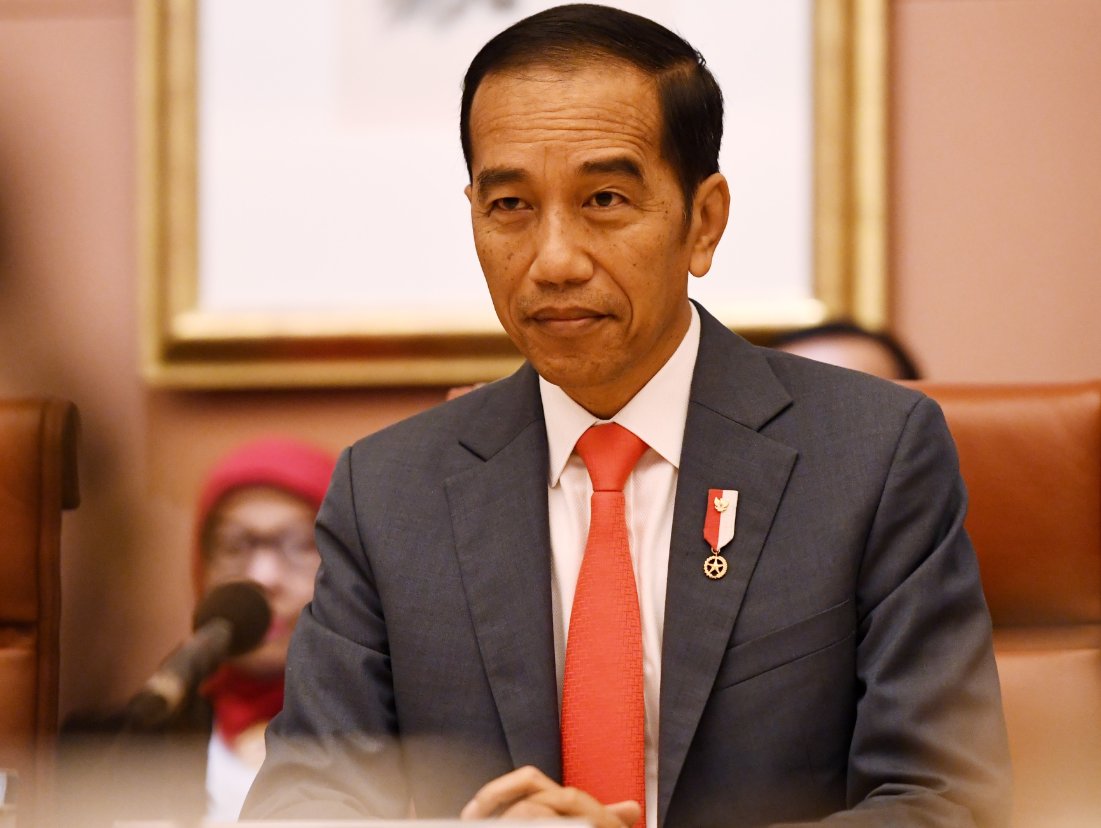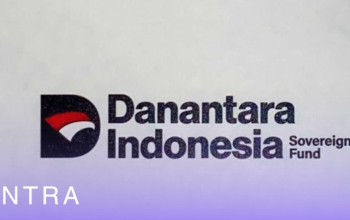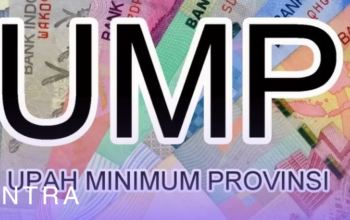sentra– Jokowi Summons All Ministers: In a significant move to address pressing national issues, President Joko Widodo, commonly known as Jokowi, called for a comprehensive meeting with all ministers at the Presidential Palace. The high-level meeting, held in the heart of Jakarta, was aimed at discussing various crucial matters impacting the country. Here’s a detailed overview of the outcomes and key points discussed during the session.
Key Outcomes of the Meeting
The meeting called by President Jokowi yielded several significant outcomes, addressing a broad spectrum of national issues. These outcomes are vital for Indonesia’s progress and stability in various sectors, including the economy, health, education, and the environment.
Economic Stability and Growth
President Jokowi underscored the importance of economic stability in the face of global uncertainties. The discussion highlighted several strategies to ensure sustained economic growth:
- Infrastructure Development: The government remains committed to ongoing infrastructure projects. Enhancing transportation networks, building new ports, and developing urban infrastructure are pivotal to improving connectivity, which in turn stimulates economic activities and creates jobs.
- Digital Economy: Emphasizing the digital economy, the administration aims to harness the potential of technology to drive growth. This includes supporting startups, expanding internet access to remote areas, and fostering innovation hubs to create a robust digital ecosystem.
- SME Support: Small and medium enterprises (SMEs) are the backbone of the Indonesian economy. The government plans to offer additional financial support, simplify regulatory requirements, and provide training programs to help SMEs compete in both local and international markets.
Health Sector Improvements
The health sector remains a top priority, especially in light of the ongoing challenges posed by the COVID-19 pandemic:
- Vaccination Campaign: Accelerating the vaccination campaign is crucial. The government aims to reach herd immunity by increasing vaccination rates, ensuring equitable distribution of vaccines across the archipelago, and addressing vaccine hesitancy through public awareness campaigns.
- Healthcare Infrastructure: There is a strong focus on enhancing healthcare infrastructure. This includes building new hospitals, upgrading existing facilities, and ensuring a steady supply of medical equipment and medicines to handle current and future health crises effectively.
- Public Health Initiatives: To curb the spread of diseases, the government is promoting public health awareness campaigns. These initiatives focus on preventive measures, healthy lifestyles, and the importance of regular health check-ups.
Education Reforms
Education reforms are essential to prepare the next generation for future challenges:
- Online Learning: The pandemic highlighted the need for robust online learning systems. The government plans to invest in digital infrastructure for schools, provide training for teachers in digital education tools, and ensure students have access to the necessary technology for remote learning.
- Curriculum Update: Updating the national curriculum to reflect current industry needs is critical. This includes incorporating digital literacy, critical thinking, and vocational training to equip students with skills that are relevant in the modern job market.
- Teacher Training: Investing in professional development for educators is another priority. This involves continuous training programs to improve teaching methodologies, integrate technology in classrooms, and adopt innovative pedagogical approaches.
Environmental Conservation
Sustainable development and environmental conservation were key topics of discussion:
- Deforestation Control: To combat deforestation, the government is implementing stricter measures against illegal logging. This includes enhancing surveillance, imposing heavier penalties, and promoting community-based forest management programs.
- Renewable Energy: Transitioning to renewable energy sources is a strategic goal. The government is encouraging investments in solar, wind, and hydroelectric power projects to reduce the nation’s carbon footprint and reliance on fossil fuels.
- Waste Management: Effective waste management is critical to addressing pollution. Initiatives include expanding recycling programs, improving waste collection and disposal systems, and promoting the use of eco-friendly products.
Strategic Policy Decisions
The meeting also resulted in several strategic policy decisions aimed at fostering a conducive environment for growth and development:
- Investment Policies: New policies are being introduced to attract foreign direct investment. These policies focus on reducing bureaucratic red tape, offering tax incentives, and creating special economic zones to lure investors.
- Regulatory Reforms: Streamlining regulatory processes is essential for business growth. The government plans to simplify business licensing procedures, reduce unnecessary regulations, and enhance transparency to create a more business-friendly environment.
- Social Welfare Programs: Expanding social welfare programs is vital for reducing poverty and supporting vulnerable populations. Initiatives include increasing social assistance for low-income families, improving access to education and healthcare, and creating job opportunities through public works programs.
These key outcomes reflect President Jokowi’s comprehensive approach to tackling Indonesia’s challenges. By focusing on economic stability, health improvements, education reforms, and environmental conservation, the government aims to ensure sustainable development and an improved quality of life for all Indonesians.
Health Sector Improvements
Addressing health sector challenges remains a top priority for President Jokowi’s administration, especially given the ongoing impact of the COVID-19 pandemic and other public health concerns. The meeting with all ministers highlighted several critical strategies and initiatives aimed at improving the nation’s healthcare system.
Vaccination Campaign
The government is committed to accelerating the nationwide vaccination drive to achieve herd immunity and curb the spread of COVID-19. Key elements of this initiative include:
- Enhanced Distribution: Ensuring that vaccines are distributed efficiently and equitably across all regions, including remote and underserved areas. This involves setting up additional vaccination centers and mobile units.
- Public Awareness Campaigns: Implementing extensive public awareness campaigns to address vaccine hesitancy and misinformation. These campaigns aim to educate the public about the safety and efficacy of vaccines, encouraging higher vaccination rates.
- Partnerships: Collaborating with international organizations, private sector partners, and local communities to secure sufficient vaccine supplies and support the logistics of the vaccination rollout.
Healthcare Infrastructure
Improving healthcare infrastructure is essential to providing quality care and preparing for future health emergencies. The government plans to:
- Hospital Expansion: Construct new hospitals and upgrade existing ones to increase capacity and improve the quality of care. This includes specialized facilities for critical care and infectious diseases.
- Medical Equipment and Supplies: Ensure a steady and sufficient supply of medical equipment, such as ventilators, diagnostic tools, and personal protective equipment (PPE). This also involves investing in state-of-the-art technology to enhance diagnostic and treatment capabilities.
- Healthcare Workforce: Strengthen the healthcare workforce by recruiting more medical professionals, providing continuous training, and improving working conditions to retain skilled staff. Special focus is given to training in pandemic response and emergency care.
Public Health Initiatives
Promoting public health and preventive measures is crucial to reducing the burden of diseases. The government’s initiatives in this area include:
- Preventive Health Programs: Launching programs aimed at preventing common diseases, such as diabetes, hypertension, and infectious diseases. This involves regular health screenings, vaccination drives for other preventable diseases, and community health education.
- Healthy Lifestyle Campaigns: Encouraging healthy lifestyles through campaigns that promote balanced diets, physical activity, and smoking cessation. These campaigns are targeted at various demographics, including children, adults, and the elderly.
- Sanitation and Hygiene: Improving sanitation and hygiene standards across the country to prevent the spread of communicable diseases. This includes enhancing public sanitation facilities, ensuring access to clean water, and promoting hand hygiene practices.
Mental Health Support
Recognizing the importance of mental health, especially in the wake of the pandemic, the government is taking steps to provide comprehensive mental health support:
- Mental Health Services: Expanding access to mental health services by increasing the number of mental health professionals and integrating mental health care into primary healthcare services.
- Public Awareness: Raising awareness about mental health issues to reduce stigma and encourage individuals to seek help. Public campaigns aim to educate the population about common mental health conditions and available resources.
- Support Systems: Establishing support systems for those affected by mental health issues, including helplines, community support groups, and online counseling services.
Health Insurance and Accessibility
Ensuring that all citizens have access to affordable healthcare is a fundamental goal. The government is working on:
- Universal Health Coverage: Strengthening the national health insurance program (BPJS Kesehatan) to cover more individuals and reduce out-of-pocket expenses. Efforts are being made to streamline the enrollment process and improve service delivery.
- Healthcare Accessibility: Enhancing healthcare accessibility in rural and remote areas by deploying mobile health clinics, telemedicine services, and incentivizing healthcare professionals to work in underserved regions.
- Affordability: Implementing measures to reduce the cost of medicines and medical treatments. This includes negotiating better pricing with pharmaceutical companies and promoting the use of generic medicines.
Research and Development
Investing in healthcare research and development is crucial for advancing medical knowledge and improving patient care. The government is focusing on:
- Medical Research: Supporting research initiatives aimed at understanding and combating prevalent diseases in Indonesia. This includes funding for universities, research institutions, and partnerships with international organizations.
- Innovation: Promoting innovation in medical technology and treatment methods. The government encourages startups and established companies to develop new healthcare solutions and technologies.
- Data Systems: Improving health data systems for better monitoring, reporting, and decision-making. This involves implementing electronic health records (EHR) and other digital tools to enhance the efficiency and accuracy of health information management.
By prioritizing these key areas, President Jokowi’s administration aims to build a robust healthcare system capable of addressing current challenges and future health needs, ultimately improving the overall health and well-being of all Indonesians.
Education Reforms
Education reforms were another crucial topic. The government aims to:
- Online Learning: Strengthen online learning infrastructure to ensure educational continuity during emergencies.
- Curriculum Update: Revise the national curriculum to align with current industry needs and global standards.
- Teacher Training: Invest in professional development programs for educators to improve teaching quality.
4. Environmental Conservation
Environmental issues were also on the agenda, with a focus on sustainable development. Key points included:
- Deforestation Control: Implementing stricter measures to prevent illegal logging and promote reforestation.
- Renewable Energy: Increasing the use of renewable energy sources to reduce carbon emissions.
- Waste Management: Enhancing waste management systems to tackle pollution and promote recycling.
Strategic Policy Decisions
The meeting resulted in several strategic policy decisions aimed at driving the nation’s progress:
- Investment Policies: Introduction of new policies to attract foreign investments and foster a business-friendly environment.
- Regulatory Reforms: Streamlining bureaucratic processes to facilitate ease of doing business.
- Social Welfare Programs: Expanding social welfare programs to support vulnerable populations and reduce poverty.
Conclusion
President Jokowi’s meeting with all ministers at the Presidential Palace highlights his administration’s commitment to addressing critical national issues and steering Indonesia towards a prosperous future. The outcomes of this meeting reflect a comprehensive approach to tackling economic, health, educational, and environmental challenges, ensuring sustainable development and improved quality of life for all Indonesians.
Stay updated with the latest developments from the Presidential Palace as the government implements these strategic initiatives to build a stronger and more resilient nation.




